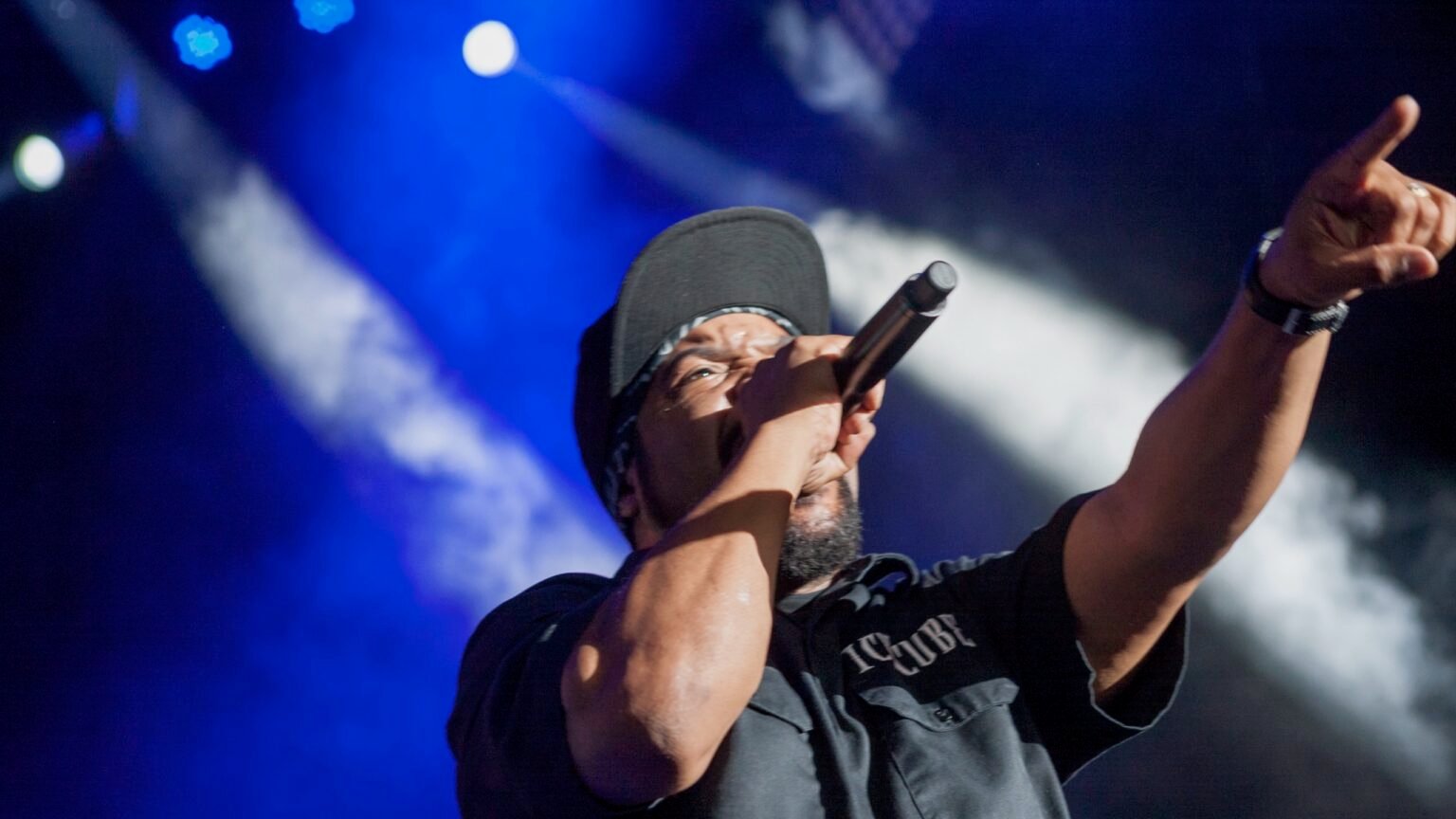Legendary rapper Ice Cube has spoken out against AI-generated music as well as platforms that distribute it, branding AI as “demonic.” AI-generated content in the art and entertainment industry, especially music, has garnered conversation in recent weeks.
There have been widespread AI tools in image generation ranging from voice-to-text and text-to-voice. And now AI is making songs from unauthorized reproductions of famous musicians’ voices and musical styles.
Also read: DarkBERT: New AI Model Could Help Detect Dark Web Activity
While some have accepted such AI advancement and consider it a legitimate tool in the arts industry, some artists have expressed concern. In the most recent case, rapper and actor Ice Cube has pulled no punches about AI generated music.
While discussing the topic on the Full Send Podcast, Cube made it clear he would take legal action against anyone who used AI tools to generate music using his style, as well as the platforms that play the AI-generated songs.
“Somebody can’t take your original voice and manipulate it without having to pay.”
In the video, Ice Cube continues to say that AI is demonic and will provoke a backlash from people.
“I think AI is gonna get a backlash from real people, real authentic people.”
Offenders should be sued
The former NWA rapper also talked about “Heart on my sleeve,” a song that used AI-generated vocals that imitated Drake and The Weeknd. He said authorities should act against the people who made the song.
“I think that’s terrible,” Cube says. “I don’t wanna hear that bullshit. He should sue whoever made it.”
The “Heart on my sleeve” track simulates Drake and The Weeknd trading verses about pop star Selena Gomez, who previously dated The Weeknd. Its creator, known as @ghostwriter, claimed the song was generated by software trained on the musicians’ voices.
Barely a week after it was posted, the song had been viewed more than 8.5 million times on TikTok while the full version was played 254,000 times on Spotify.
Drake expressed displeasure at the track and Universal Music Group (UMG) wrote to streaming services including Spotify and Apple Music, asking them to prevent AI companies from accessing their libraries.
“We will not hesitate to take steps to protect our rights and those of our artists,” UMG said in an email which was first obtained by the Financial Times.
Other faked AI songs that have gone viral recently include a “deepfake” of Rihanna singing Beyonce’s Cuff It and a cloned Kanye West singing the acoustic ballad Hey There Delilah.
IA Rihanna from ChatGPT singing Beyoncé’s "Cuff It" pic.twitter.com/1TAmHEDAKv
— Rihanna Facts (@Nevernyny) April 13, 2023
According to Stephanie Holland, producer Timbaland recently came under fire after he made a collaborative song with the late Notorious B.I.G using AI. While some other artists like Ice Cube have expressed their distaste about using AI to generate music using other artists’ style and likeness, others have embraced the new technology and say they’re ready to use it to their advantage.
AI as a tool for art growth
Musician Grimes recently released Elf.tech, which can be used to generate music using AI in Grimes’ style. However, the profits of the tracks made with this AI will be split 50/50 between Grimes and the maker.
French DJ David Guetta also recently used a site called uberduck.ai to mimic the voice of Eminem and added it to one of his instrumentals. He told the BBC, “I’m sure the future of music is AI.”
He did, however, say technology could only be useful “as a tool” – just like the drum machine and the sampler before it. According to a BBC report, a broad coalition of musicians and artists have launched a “Human Artistry Campaign” whose aim is to ensure AI will not erode human creativity.
Backed by the Recording Industry Association of America, the Association for Independent Music and BPI has stressed that copyright protection should only be afforded to music created by humans.
In his recent appearance before Congress, OpenAI CEO Sam Altman said content creators were entitled to a say on how their voices, likeness or copyrighted content were used to train AI models.
“Creators deserve control,” he said.
Altman added that his company is working on a copyright system to compensate artists whose art was used to create something new.









 and then
and then